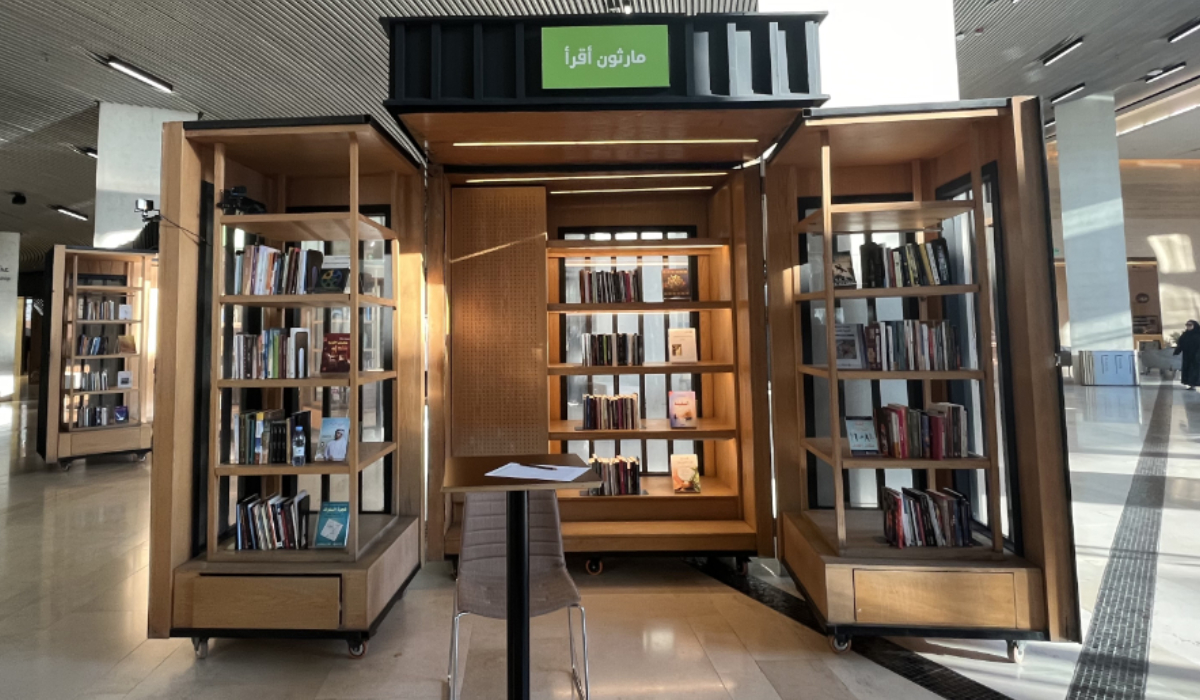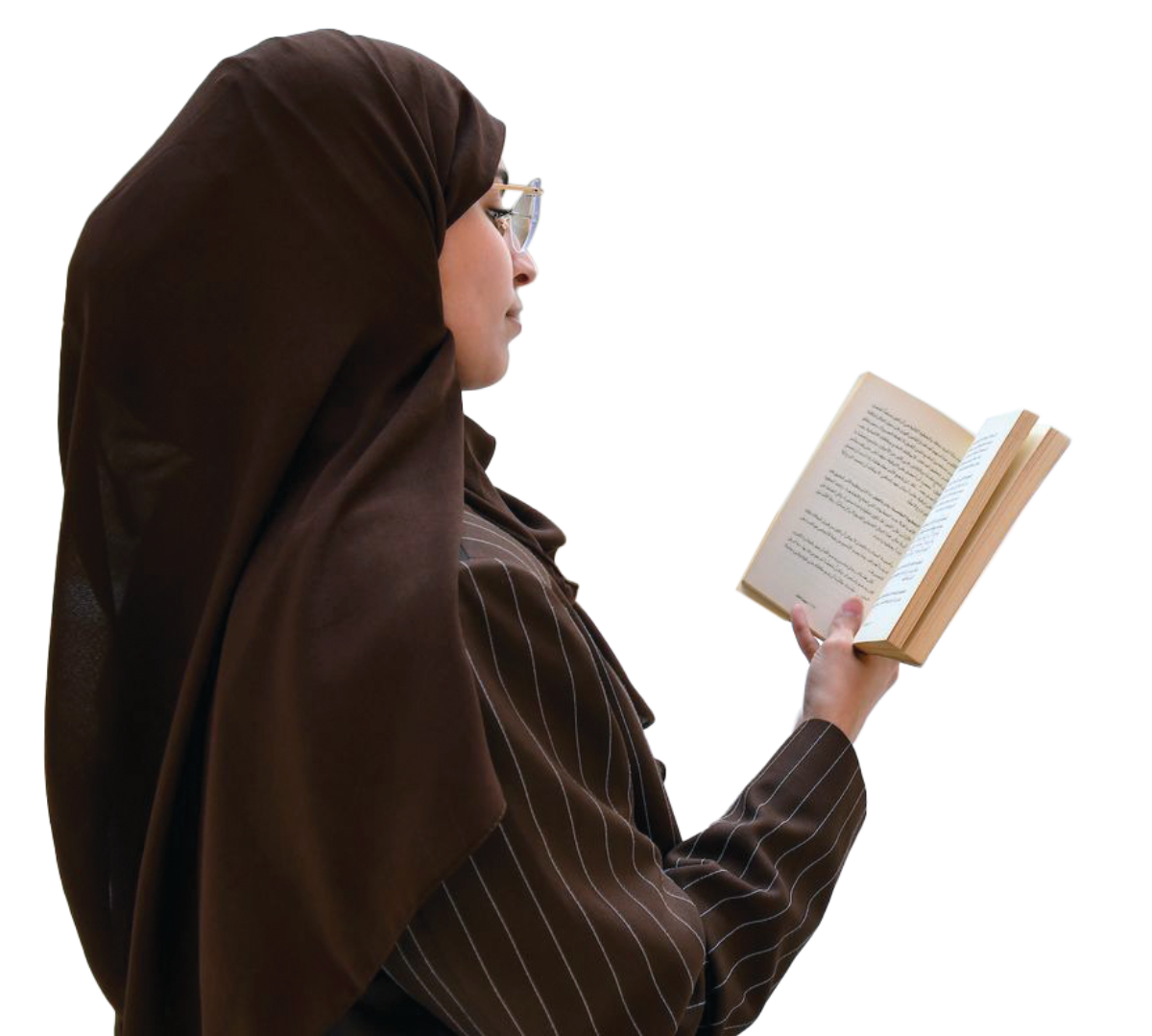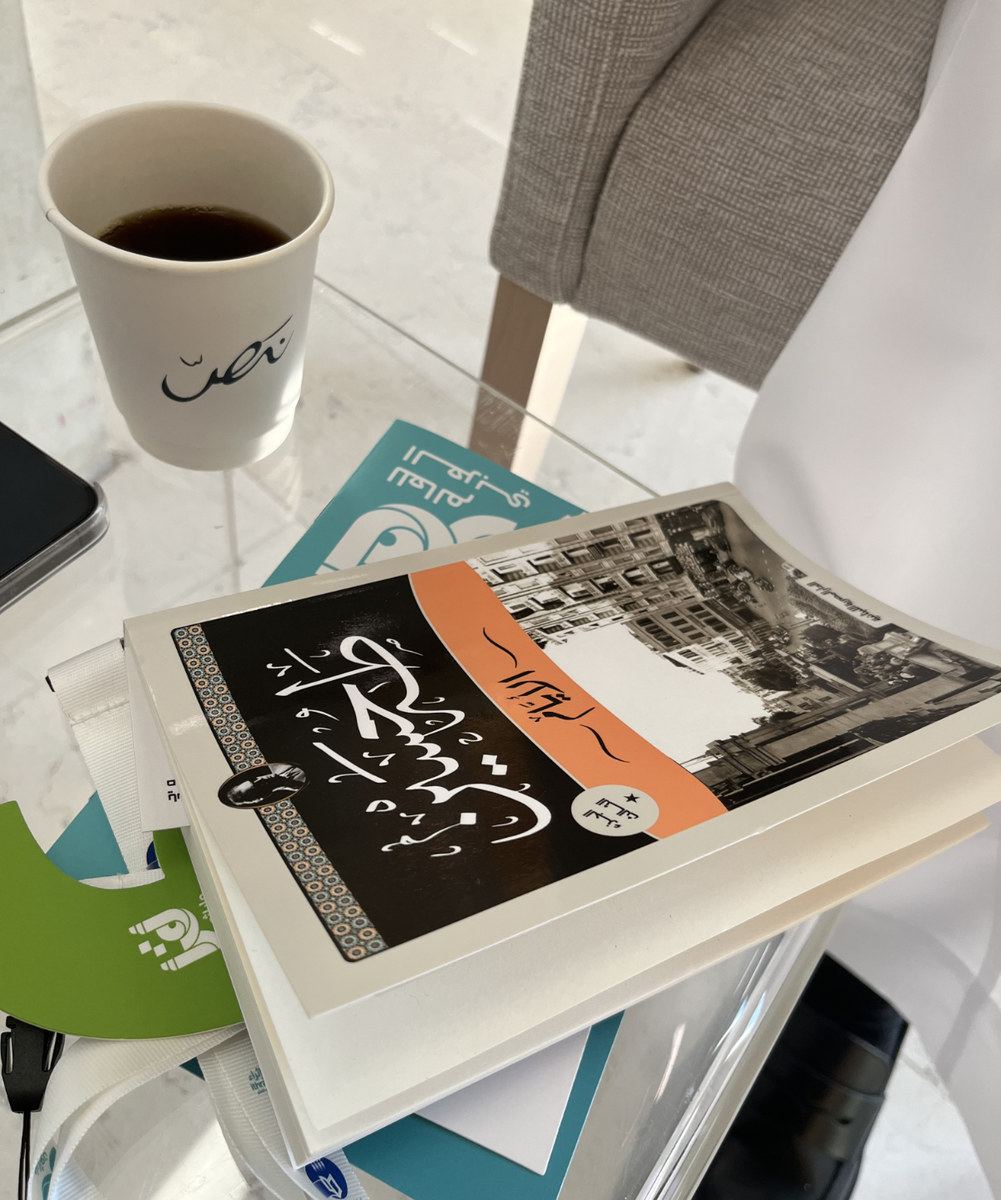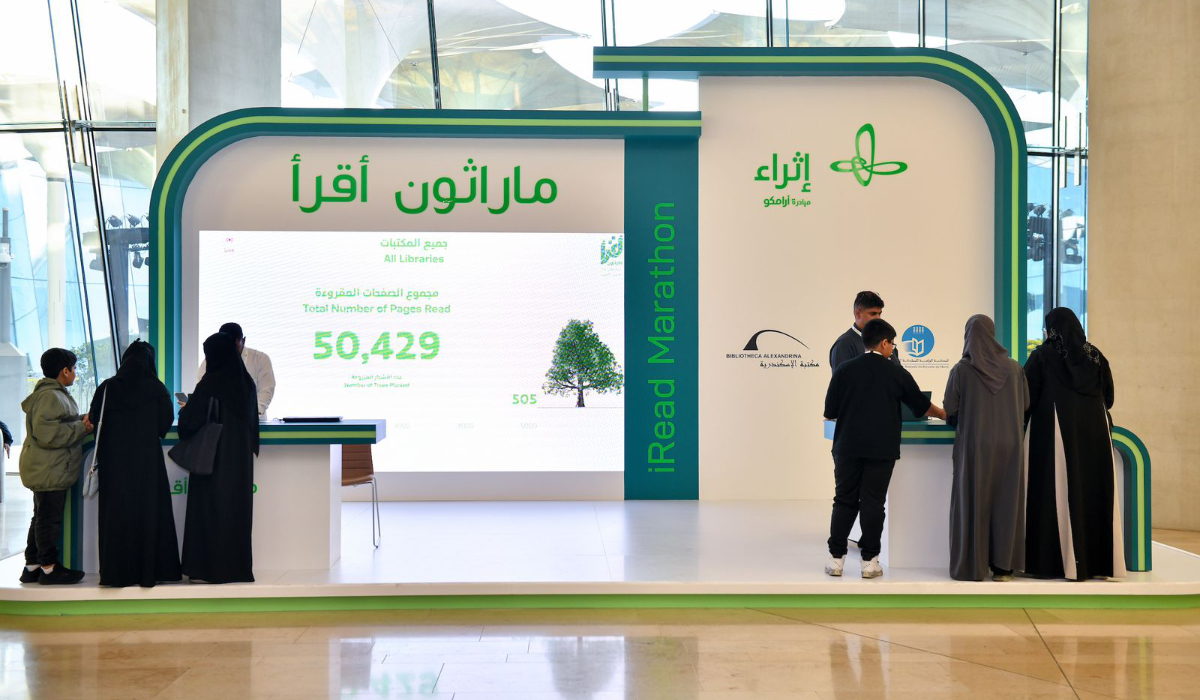DHAHRAN: A reading marathon to promote library culture and environmental awareness was recently organized in Saudi Arabia, Egypt, and Morocco, with over a quarter of a million pages read.
The Arab libraries that participated in the three-day event were King Abdulaziz Center for World Culture, also known as Ithra, the Bibliotheca Alexandrina in Egypt and the National Library of Morocco.
The goal of the marathon was to plant one tree for every 100 pages read, which Ithra estimates would take an average reader one hour. The center said that 326,250 pages were read during the reading marathon, equivalent to 2,504 trees.

The largest reading marathon in Arab libraries was organized ‘to inspire the society to read in public libraries, believing in the library’s role in enriching the scientific and cultural life.’ (Supplied/AN photos)
The printing of physical books consumes a large percentage of trees, so the planting of new ones directly arrests some of that loss.
Upon arrival at the designated library during operating hours, participants registered at the reception and received a QR code which they used throughout the experience. They were gifted a bookmark and a notebook to log their details. Upon completing their reading for the day, they returned to the reception area to declare the number of pages they read, which were then logged.
HIGHLIGHTS
• According to Ithra, 326,250 pages were read during the reading marathon, equivalent to 2,504 trees.
• Ithra will plant the trees on the readers’ behalf in collaboration with the National Center for Vegetation Cover Development and Combating Desertification in Saudi Arabia.
• A token of appreciation was awarded to those who read 100 pages, 200 pages, 500 pages and 1,000 pages.
In an effort to encourage reading in public spaces, all had to read books in-person in order for it to count, participating on one, two or all three days depending on availability.

The largest reading marathon in Arab libraries was organized ‘to inspire the society to read in public libraries, believing in the library’s role in enriching the scientific and cultural life.’ (Supplied/AN photos)
A token of appreciation was awarded to those who read 100 pages, 200 pages, 500 pages and 1,000 pages.
At Ithra, a large screen updated the number of pages completed in real time, as well as showing the updated numbers from Morocco and Egypt.
“This is the largest reading marathon in Arab libraries, held for three days from Feb. 29 to March 2. It seeks to inspire the society to read in public libraries, believing in the library’s role in enriching the scientific and cultural life,” an official statement by Ithra said.

The largest reading marathon in Arab libraries was organized ‘to inspire the society to read in public libraries, believing in the library’s role in enriching the scientific and cultural life.’ (Supplied/AN photos)
Abdulrhman Al-Qahtani was one of the participants at Ithra. An avid reader, he drove a short distance to the center to join in the fun after coming across a post about it on social media. With his cup of black coffee situated on a small round table, he found a comfortable spot in a plush seat in the middle of the plaza and was immediately immersed in a book written by the late, great Egyptian author Taha Hussein.
Speaking to Arab News, Al-Qahtani said: “I have a ritual of reading every afternoon during the weekend, but this time, it’s with an even greater purpose. Normally, people read for their own personal pleasure or growth but this was an opportunity to do what I already do — and the world would also benefit.
Planting trees is going to help make the world more beautiful, but the lasting impact on our planet will be immense.
Abdulrhman Al-Qahtani, Reading marathon participant, Ithra
“Planting trees is going to help make the world more beautiful, but the lasting impact on our planet will be immense. I’m happy to do my part.”
Talking about the experience, he added: “Usually, I read on my own at various places with the sounds of laughter swirling around me. Here, I’m amongst other readers. Ithra did a great job in making this a suitable environment for reading. Instead of reading 100 pages, you’ll read 200.
“This is my first time participating and it has been such a great experience. I brought my own book but once I’m done, I’ll browse the books available here and I’m sure I’ll read pages from those, too,” he concluded.

The largest reading marathon in Arab libraries was organized ‘to inspire the society to read in public libraries, believing in the library’s role in enriching the scientific and cultural life.’ (Supplied/AN photos)
While many of the books on the shelves at Ithra were in Arabic, readers were encouraged to read any book in any language. They could bring their own, like Al-Qahtani, or borrow some from the shelves. The pages could also be from the same book or from multiple books.
The space directly beneath the iconic Ithra library also had seats for people to sit and read on. Ithra added temporary booths with books in the middle of the plaza for easy access.
Ithra will plant the trees on the readers’ behalf at a later date, in collaboration with the National Center for Vegetation Cover Development and Combating Desertification in Saudi Arabia. The other participating countries will also plant trees in their local communities.





























